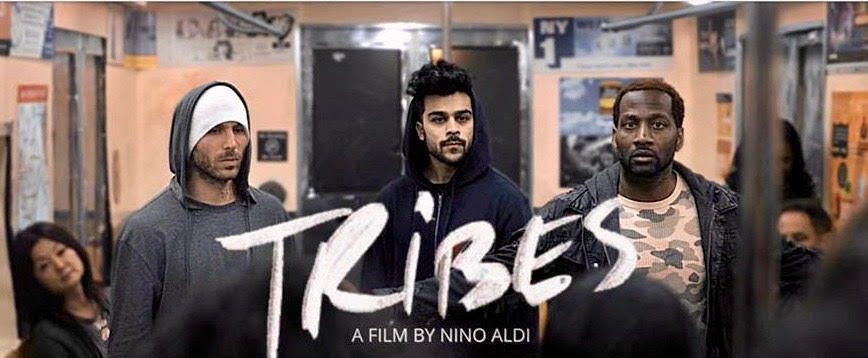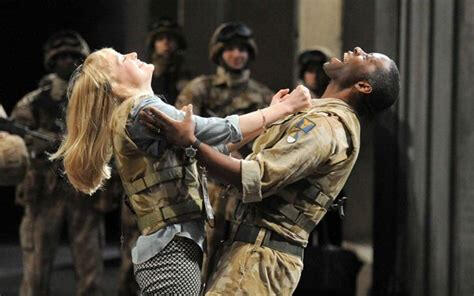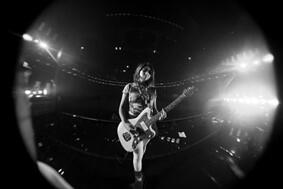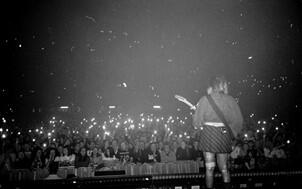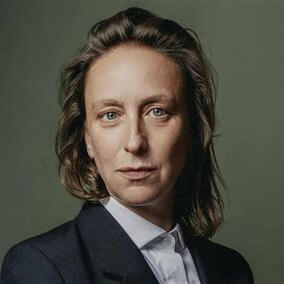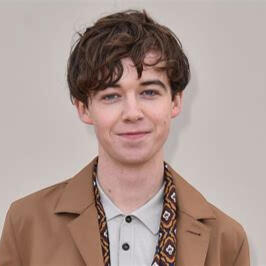‘Self-identity is a Bitch’
Is it possible to combine “woke” subject matter, concerning separatism and identity, with over-the-top, light-hearted comedy? Tribes, directed by Nino Aldi and written by Andy Marlatt, deems this as true, presenting a diversity trio of amateur train robbers, whose own personal biases refrain them from robbing their own race – or anyone identifying similarly to them, for that matter.
Initially, such a description made me question whether such satirical social commentary disguised as a heist flick would be well-received in 2021, but in 10 minutes viewing time, Marlatt’s witty dialogue and Aldi’s face paced directing provided a bite-sized adventure, juxtaposing all the tension armed robbery is recognised for. This film, in effect, gets away with being cheesy by being self-aware of its cheesy nature, a directional choice so much more enjoyable than exaggerated melodrama, a style of unserious entertainment paralleled in Edgar Wright’s Scott Pilgrim vs. the World.
On the topic of self-aware cheesiness, my favourite part was undoubtedly Jamar’s (played by DeStorm Power) bizarre monologue on categorising oneself which paragons notions of ancestry, geography, and economic status, paired with an awe-inspiring orchestral score and a heroic slow zoom in. And, of course, a close second to this must be when the trio awkwardly attempt to divide the passengers into the most ludicrous categories, including cat people vs. dog people, Moonlight vs. La La Land, and Starbucks vs. NASCAR, just to name a few. And not only does Aldi have the audience cackling in hysteria, but he also emphasises the many intersections we as individuals have with one another’s identities. Aldi’s ability to collaborate deep societal perspectives and comedy is admirable, making Tribes a one of its kind.
Specifically with systematic racism remaining a severe issue internationally, and segregation still being a topic of discussion, the themes pertinent within Tribes are easy to collude with as an audience. In a society so conflicted amongst itself, Aldi reminds us to relax and find comedy within what cannot be so easily understood.
Othello: The National Theatre’s Modern Tragedy
Othello is one of Shakespeare’s plays which can be retold through a thousand different lenses, including 2001’s ‘O’, depicting the plot set in an American high school, Frantic Assembly’s physical theatre retelling, or the more common period drama. Performed at the National Theatre, Nicholas Hynter adapts Shakespeare’s with a contemporary edge portraying universal themes of, not only racism and dismal personal relationships, but betrayal of brotherhood. Despite ‘very minor surgery’ to the play text, Hynter states in an interview that ‘none of it remotely [affects] the centre of it’, creating that seamless line between loyalty to the script and making sense within the given modernised context.
Adrian Lester takes the stage as the eponymous hero, immediately captivating the audience with his sense of charisma and authority through his portrayal of a devoted military man. Lester’s powerful yet self-aware speech is emphatic, suggesting the hero to be gullible, rather than deluded. Even when he tragically murders his loving wife, his eloquence is hauntingly captivating, fabricated on an element of emotional realism. Lester’s illusion of mental security, which slowly and painfully deteriorates, emphasises the juxtaposition from the level-headed authority figure that he was, leaving the audience stunned beyond his final breath.
The tragic hero’s hamartia of being too open and honest is a perfect contrast to Iago’s sadistic nature, suggested through Rory Kinnear’s portrayal of the infamous Machiavellian villain. Kinnear’s Iago is brutal and callous, yet it is as if his life-changing plans are carelessly thrown together on the spot. Through his eerily naturalistic delivery, with an added element of dirty modern masculinity, exemplified through gestures of biting his nails, sly smirks, or punching the air, Kinnear forces us to collude with his villain. Not to mention his looming presence, shrinking into the background, watching his evil schemes unfold, Iago’s insecurity and sadism truly steals the show, reflecting society in a mind-bending way.
Acting works in unison with Vicki Mortimer’s phenomenal set design, with the National Theatre being completely transformed into a Cypriot military base. It is a place of concrete, camouflage, and claustrophobia, with bunkers folding and interlocking as Othello continuously misconstrues the truth and Iago continuously manipulates his victims. These bunkers reveal offices, military accommodation, even toilet cubicles; this production is jam-packed with surprises.
Nicholas Hynter never shies away from relating these Shakespearean classics to current society, with his first play, Henry V, presenting an anti-Iraq war. His readaptation of Othello is certainly no exception, providing social commentary on transcendental themes, such as racial and geopolitical identity, betrayal, love, and conflict. The National Theatre has produced many spectacular modern adaptations of iconic classics, including Shakespeare’s Hamlet, Sophocles’ Antigone, or Euripides’ Medea, and Hynter successfully wittles himself into that set of directors, continuing to preserve classic plays for both the legacy of these writers, and for the benefit of generations to come.
Beabadoobee’s O2 Arena Debut
February 21st, 2020 marks Beatrice Kristi, also known as Beabadoobee’s O2 Arena debut, supporting the world-renowned quintessential British band, The 1975. The prolific 19-year-old songwriter takes to the infamous London stage, dazzling the audience with her combination of angelic vocals, flashing lights, thrashing her dyed hair, and nostalgic riffs, reminiscent of 90s feminist rock’s joy and charm. For a new generation for whom grungy indie rock is new, her performance is a joyous experience.
The star rose to fame through her breakthrough single from 2017. Sampled by Powfu in his TikTok sensationalised track ‘death bed’ in 2020, Beatrice’s debut single, ‘Coffee’, paved the way for Gen Z’s angel-voiced indie rock star when she was only 17. Both tracks have collected over 96 million streams on Spotify alone for the rising star. Now, full circle, she graces the O2 stage with the song that started it all, to a sea full of cell phone lights. ‘Coffee’ exemplifies a very teen admixture of hostility and softness through soft vocals and cosy guitar strumming. Although, the young artist has a newfound sound, involving more optimism and more rock.
Indeed, this sound is not solely original, however Beabadoobee as of 2020 is indeed a collage of 90s indie veterans, bringing to mind the auditory and aesthetic choices of No Doubt and Avril Lavigne. Especially at the end of her O2 act, where she busts out the fan favourite ‘She Plays Bass’, a eulogy to female musicians, specifically her bassist and best friend, Eliana.
Even her label mate, Matty Healy, lead singer of The 1975, proclaims the young singer as “the most exciting thing in rock” upon handing her the NME Under the Radar award, and indeed she is. With her moshpit of mostly teenage girls cheering her on, she is a tonic during the performance, singing dreamily of teenage concerns, of love, loss, and growing up with the entire crowd singing every word.
Researching Different Careers in the Arts
Here, I researched three different careers within the arts, particularly noting how to enter the field of work, skills required within each role, and duties/day-to-day tasks involved.

Researching Different Art Practitioners
For this section of my Silver Arts Award, I decided to focus on the art sectors which interested me the most (screenwriting, directing and acting). I researched Sciamma and Lawther's road to success, as well as notable moments within their careers.
Céline Sciamma (French screenwriter and film director)
Sciamma was an avid reader as a child, but got into film as a teenager. She studied literature because she expressed a desire to study the craft and substance of fiction. She went on to study at La Fémis, a Paris based grande école part of PSL Research University. In 2014, it was no.3 in best international film school ranking (excluding American based film schools).
Water Lilies was her first original script, which was part of her final evaluation at La Fémis. Xavier Beauvois, chairman of the evaluation panel and her mentor, urged her to make this film. A year later, she shot Water Lilies in her hometown.
Rather than utilising the typical American methodologies surrounding screenwriting, she wrote it all out instead of making a synopsis or second drafts. Sciamma expressed that 'you mustn't say that writing is a job: you're an artist and you're working on a craft'. Furthermore, Sciamma is commited to dismantling the male gaze within cinema, with gender fluidity and female sexual identity being pertinent themes across her work.
Alex Lawther (British actor of film, TV, and theatre)
Educated at Churcher's College private school in Hampshire, Lawther was heavily involved in the drama program. His involvement includes play Ratty in The Wind in the Willows, as well as writing and directing his own full-length play, Rejected Fairytales, which received laudatory coverage in the local press.
Lawther initially only considered acting as a hobby, he did not study it for GCSE or A-Level, and was initially planning to study History at King's College London.
However, at 15, he was accepted into the prestigious National Youth Theatre, where he received professional acting training. At 16, his professional debut began, where he played John Blakemore in South Downs at Chichester Festival Theatre and the West End. He was also combatting his A-Levels during this time. He signed a contract with an agent after this, moved to London, and found his breakthrough role as young Alan Turing in the Imitation Game.
Interview with Simisolaoluwa Akande
For my interview, I decided to question a young filmmaker since I hope to reach this level of professionalism in the near future, thus the information provided will assist my pursuit of that, plus accessing contact with them was easily done.
Simisolaoluwa Akande, also referred to as Simi, for short, is a film student pursuing a film career. She studied at Brit school and is currently studying at Warwick University. She also does freelance photography and videography alongside her own projects and her studies.
Her films include Dudu, which concerns the effects of colourism and self-identity, as well as her award winning Ojumo Ti Mo, which is a documentary about the familial effects of her father’s passing. This film has won awards from many festivals and competitions, for example Film Africa and Who We Are.
The interview transcript below was carried out via email.
How would you describe your work? What themes do you value you to portray the most?
I would describe my work as a sort of diary of an anxious black female teenager. With a lot of my work I often feel as though I am oversharing (and I probably am), but I have learnt to find value in this. What I call “oversharing” is simply having the bravery to take up space, finding the courage to point the camera towards myself and the ones that I love. For a lot of people of colour, cinema is not a welcoming place, so by treating it as a kind of ‘Diary’ I am trying to take back power from an institution that has dubbed our stories irrelevant.
What made you decide to pursue film?
Originally, I wanted to be an actress on Disney channel, but I found I had to give this dream of pretty quickly when I realised that people like me; a Dark skin, African, ‘fat’, queer person were not too celebrated in front of the screen. I guess I decided to shift my focus towards being the person in charge of who gets to be seen so that I could put my mother and my sisters on screen, celebrated where they belong.
What was Brit School like in terms of your film experience?
The Brit School threw me right into the deep end with filmmaking. We would have multiple big projects every term, which meant that we were constantly making films. I think this is the best method of work as it is very similar to the real world. I was a very anxious student, but I was thoroughly nurtured there by teachers and students alike who identified my ‘talent’ before I did.
How is Warwick University? What other ways could you implement yourself in-to film other than studying in uni?
Studying at University of Warwick is a very personal decision. Film like other creative careers often do not have set career paths the way that a doctor or an accountant might have, going to university isn’t strictly required. But in knowing myself I felt that I had more growing that I needed to do in terms of my knowledge of film as a history of an art. The way I see it, I have to invest time into understanding the art form that was used to oppress and subjugate me so that I may learn the mechanisms of its process and essentially explore it from the inside.
What is the biggest challenge you face in your work frequently? And what is the biggest challenge you’ve faced in your entire career?
The biggest challenge I face is self-doubt. I am very fortunate to have been provided so many amazing opportunities, it is I who stands in my way. Especially as a creator of colour the road is littered with self-doubt or feeling as though one simply doesn’t belong. Out of all else this is what I would say is most people’s biggest hurdle. I believe that one realise their immense potential of creative forces very little else stands in their way.
What’s the biggest piece of advice you’d give someone wanting to pursue film?
My biggest advice is to make films. Bad films, good films, films on your phone, or whatever else you have access to. Make what you want to see and make it badly, then make it again. Perfectionism is actually a sickness that paralyses so many (me also) making films for the joy of it is everything.
Secondly, put yourself in spaces that fester opportunity. Message creatives that inspire you. Sign up to schemes targeted at young people, especially young people of minority identities.
Thirdly get educated however you see fit, an uneducated creator can only recreate the world they attempt to escape.
Where do you see yourself in 10 years with your career?
I hope to have created 2-3 feature films that truly depict and celebrate the stories of minority identities. I hope to have been well established in Nigeria, working with other creatives to build up a fruitful cinema industry back home.
What opportunities would you recommend for a secondary school student?
Being young is such an advantage in this world. There are many schemes that are specific towards young people with little to no experience that can give you the steppingstone that you need.
Link up with other creatives online and build a community of people so you can continue to grow as a creative
This is not a career path like others, you truly have to accept the responsibility of creating a unique path for yourself. Do not worry yourself where others are, but make every decision based on what you know will grow your skills.
Stagnation is the greatest enemy of any creative individual, aim to learn more, listen better, see clearer and use this to make your work.
Build your own communities at school, make film clubs both of production and creation and convince yourself that you are already a filmmaker, no one can give you the title but yourself.
Please do not forget to put even your worst films into local festivals so that others can see them.
What was the biggest issue for you during secondary school (KS5), staying in your hometown in terms of your film experience?
Living in a small town doesn’t give many choices of accessing film programmes. The world one desires often feels so far away.
It often felt that no one understood what I was trying to ‘build’
Do you prefer post, during or pre production? Why?
To be honest all stages of film production for me is troublesome and comes with its own special difficulties. I think I would say pre-production as there is always an excitement for the potentiality of the idea. However this portion of work often entails more planning and paper work.
Where do you find inspiration?
I find inspiration mostly in my family and friends. In listening to stories that go untold and working with others to help tell their stories and my own.
I really believe that the more exposed one becomes to different cinematic forms the better as it pushes the boundary of what film can be and allows you to truly build a world of your own.
Do you prefer solo projects or group projects?
I seem to find it easier to work alone, but this comes more from lacking confidence in my ideas. Film is a highly collaborative process and is so for the very reason that making art as a community always makes for the creattion of the best work.
I do believe however that starting on your own can be a good way to trust your creative eye.
